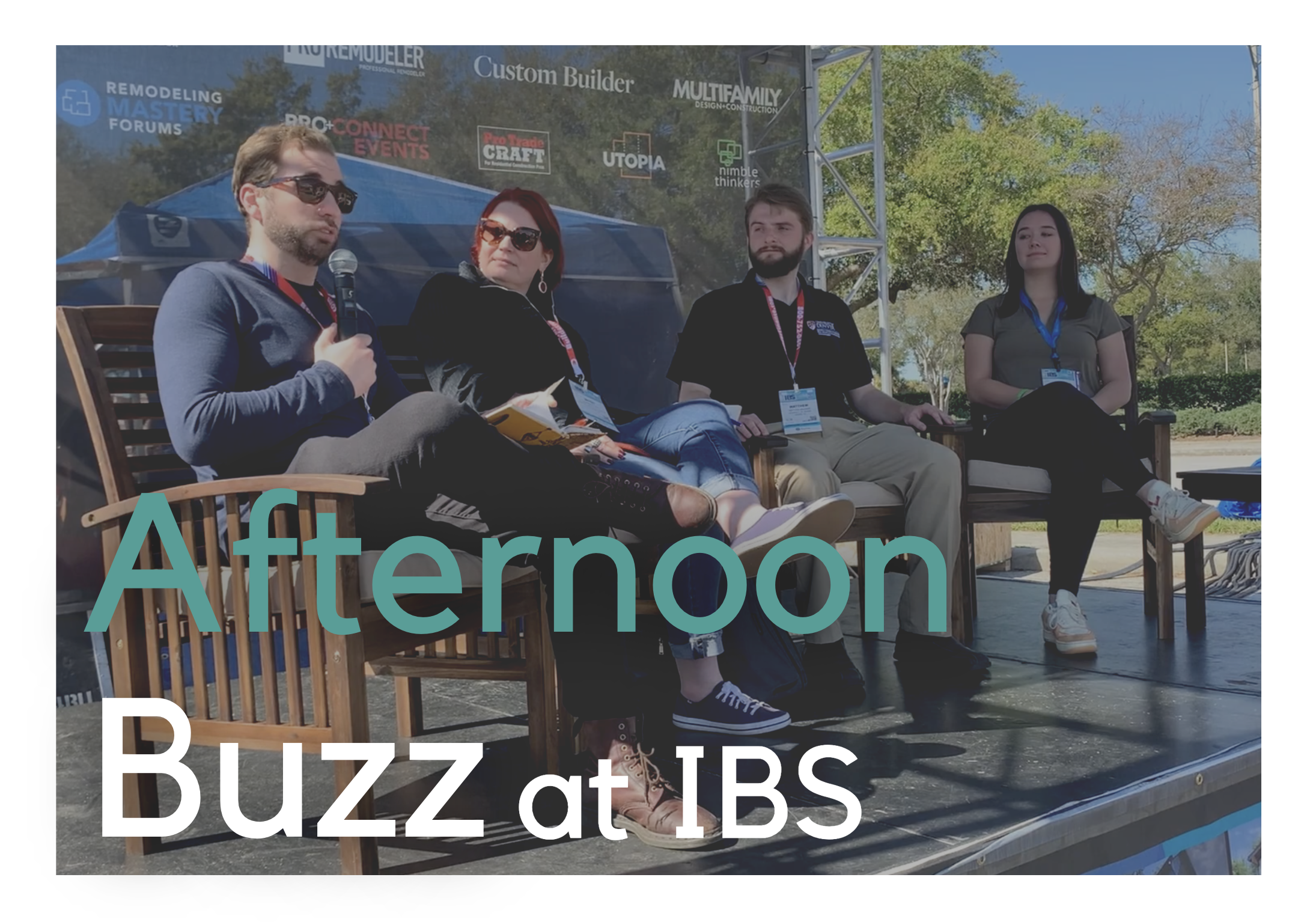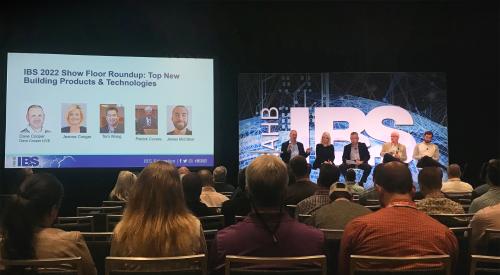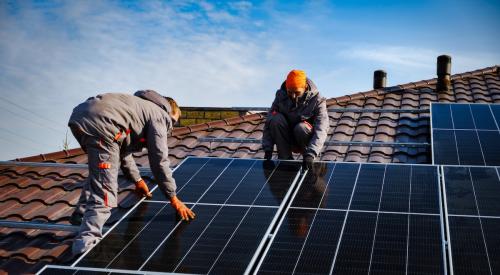Hosted daily on the Show Village stage at the 2022 International Builders’ Show in Orlando, Afternoon Buzz was a chance for Residential Products Online digital content director James McClister and Betsy Scott, executive director of programs and engagement for the Housing Innovation Alliance (HIA), to sit down along with students from The University of Denver—attending as part of a partnership with HIA—for a quick chat to recap their respective highlights of the day.
The panel provides a glimpse into the trends, innovations, and experiences that were showcased at this year’s show.
Solar’s Evolution
Included among the topics discussed were the bounds by which solar technologies are evolving, with HIA’s Scott specifically mentioning improvements in the area of solar shingles. She used GAF’s Timberline Solar Energy Shingles, named “Most Innovative Construction Tool” as part of the Best of IBS—and recipient of myriad other awards—as an example of how the technology has reached new heights, even when compared to only a short time ago.
“It's interesting to see the evolution over the last five years,” said Scott. “It’s nice to see when somebody takes a kernel of an idea that's maybe not executed as well as it could be, and overcomes some of the issues with installation and issues with use in the field.”
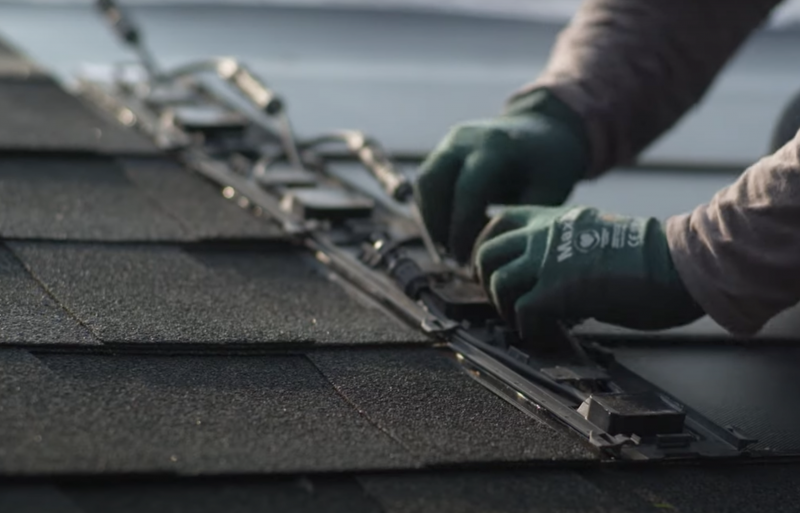
GAF's new solar product offers a unique route poroliferating the energy source in the mainstream, considering the brand's existing presence in the US housing market. According to GAF, one in four homes nationwide features its roofing products.
…including its ROI growth
Guest panelist Matt Baldwin, a master student from The University of Denver, further noted that solar’s evolution, while impressive in its improvements in technology and ease of install, is also making great strides in mainstream marketability (i.e., price).
“Some of the (solar) technology that I've seen here, has been very focused on the consumer—making solar not just a good option for the environment, not just good for society, but good for the consumer's wallet,” said Baldwin, referencing Savant Power as an example of this trend. “Savant is doing a lot with making batteries more efficient and using the smart allocation of your solar energy to store it during the day when electricity might be more expensive."
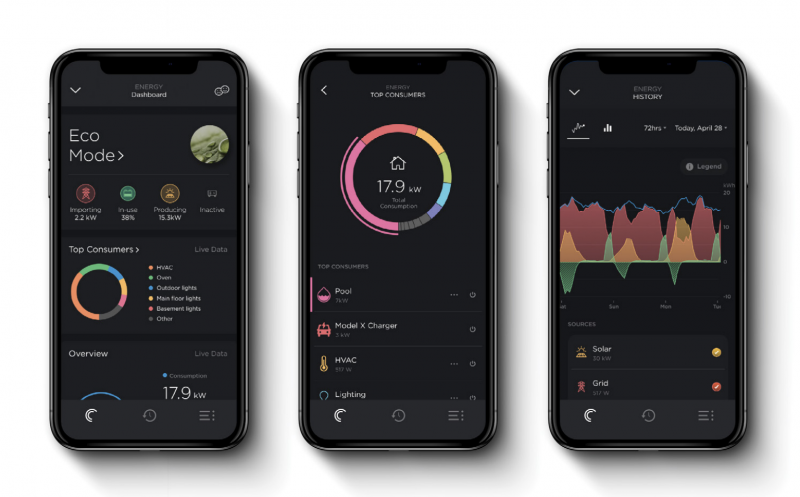
According to Savant, its system allows users to "view and monitor energy usage trends, see real-time, utility grade consumption data and activate pre-definied Energy Modes based on consumption, time-of-day pricing, weather events, and other conditions."
Savant’s system and technologies like it are particularly appealing for residents in areas where utility companies offer a “time-of-use” pricing policy, like in Colorado, Baldwin pointed out.
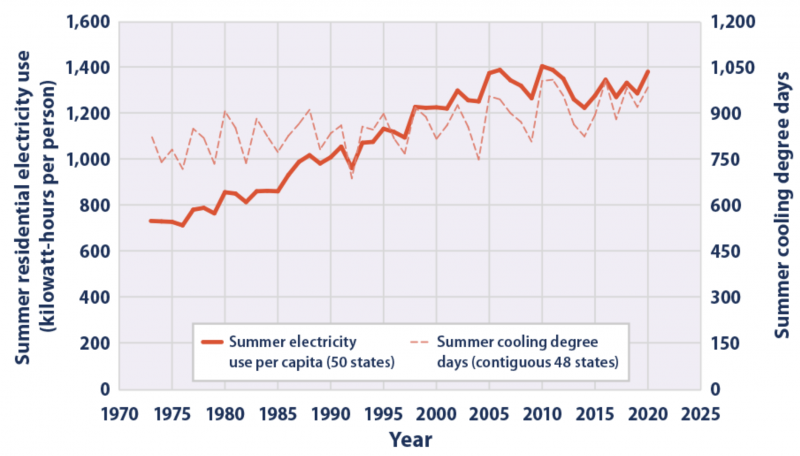 According to The Denver Post, Xcel Energy, the state’s electric utility, this year shifted 310,000 residents to a pricing system that “(incentivises) electric use at night instead of during peak daytime hours.” The utility shows on its website that the difference in pricing will vary both by time of day and time of year, with the greatest disparity in price per kilowatt-hour (kWh) appearing in summer. During the months of June, July and August, between 3pm-7pm energy will cost $0.27/kWh and 7pm and 1pm cost $0.10/kWh—which for the average individual, who will use about 1,400 kWh in a summer, according to the EPA (pictured right), represents a maximum potential difference of $140.
According to The Denver Post, Xcel Energy, the state’s electric utility, this year shifted 310,000 residents to a pricing system that “(incentivises) electric use at night instead of during peak daytime hours.” The utility shows on its website that the difference in pricing will vary both by time of day and time of year, with the greatest disparity in price per kilowatt-hour (kWh) appearing in summer. During the months of June, July and August, between 3pm-7pm energy will cost $0.27/kWh and 7pm and 1pm cost $0.10/kWh—which for the average individual, who will use about 1,400 kWh in a summer, according to the EPA (pictured right), represents a maximum potential difference of $140.
Wellness and Sustainability
Also discussed was the emphasis on sustainability and wellness at this year’s IBS—and indeed throughout the whole of Design and Construction Week, which encompasses the Kitchen and Bath Industry Show. For University of Colorado senior Desiree Aliason, she was particularly drawn to products that combined the two, mentioning Owens Corning’s popular PINK fibreglas insulation.
“(Owens Corning) uses 100 percent wind energy to create their product and they took the bad part of fiberglass out of it. We picked it up and rubbed it on our faces. It was so soft,” said Aliason. “It's really great to see the innovative systems that are going to help save workers in the field, help save the consumers wallet, and also to help save the environment."
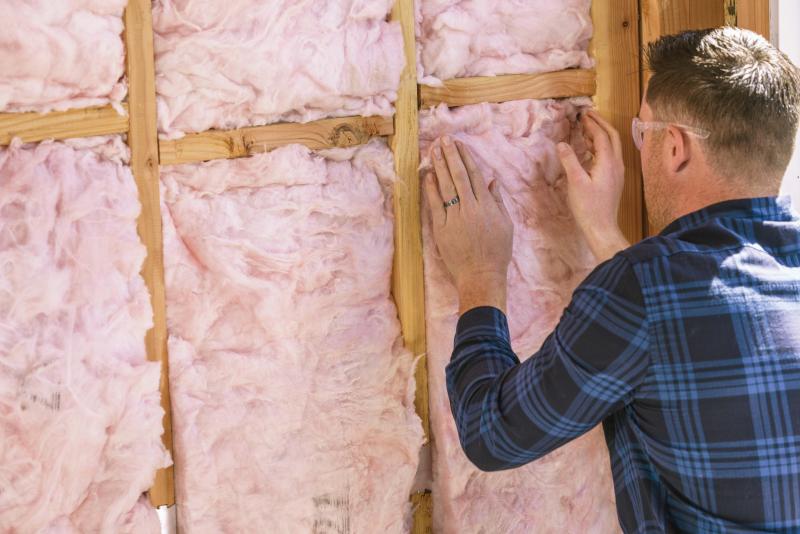
Owens Corning's PINK Next Gen Finberglas insulation, a 2021 MVP Award winner, "features advanced fiber technology and enables up to 23% faster installation compared to existing products," according to the manufacturer.
Sustainability, in fact, was a key component of The University of Denver students attending DCW. “There is a big push to move to carbon neutrality in Denver,” Scott explained.
The growing importance of sustainability for the city apparently has local contractors interested in Environmental Product Declarations, or EPDs, which confirm the verification of an individual products’ environmental performance. Identifying EPD-rated products was a task the students were in part sent to IBS to complete. However, as Scott pointed out, EPD ratings were not easily found.
"I think that's an opportunity for us ... to make (EPDs) known to the industry (and) that builders are looking for the disclosures, both production builders in the field and a lot of our friends who do off-site construction, as well,” Scott said. “Hopefully by the time we get to next year;’s show, we’ll have more of those that can pick up and share with the industry.”
For more insights from IBS and DCW at-large, please check out the video below.
